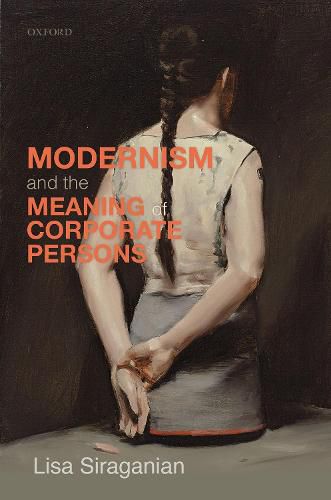Readings Newsletter
Become a Readings Member to make your shopping experience even easier.
Sign in or sign up for free!
You’re not far away from qualifying for FREE standard shipping within Australia
You’ve qualified for FREE standard shipping within Australia
The cart is loading…






Long before the US Supreme Court announced that corporate persons freely speak with money in Citizens United v. Federal Election Commission (2010), they elaborated the legal fiction of American corporate personhood in Santa Clara v. Southern Pacific Railroad (1886). Yet endowing a non-human entity with certain rights exposed a fundamental philosophical question about the possibility of collective intention. That question extended beyond the law and became essential to modern American literature. This volume offers the first multidisciplinary intellectual history of this story of corporate personhood.
The possibility that large collective organizations might mean to act like us, like persons, animated a diverse set of American writers, artists, and theorists of the corporation in the first half of the twentieth century, stimulating a revolution of thought on intention. The ambiguous status of corporate intention provoked conflicting theories of meaning-on the relevance (or not) of authorial intention and the interpretation of collective signs or social forms-still debated today. As law struggled with opposing arguments, modernist creative writers and artists grappled with interrelated questions, albeit under different guises and formal procedures. Combining legal analysis of law reviews, treatises, and case law with literary interpretation of short stories, novels, and poems, this volume analyzes legal philosophers including Oliver Wendell Holmes, Jr., Frederic Maitland, Harold Laski, Maurice Wormser, and creative writers such as Theodore Dreiser, Muriel Rukeyser, Gertrude Stein, Charles Reznikoff, F. Scott Fitzgerald, and George Schuyler.
$9.00 standard shipping within Australia
FREE standard shipping within Australia for orders over $100.00
Express & International shipping calculated at checkout
Long before the US Supreme Court announced that corporate persons freely speak with money in Citizens United v. Federal Election Commission (2010), they elaborated the legal fiction of American corporate personhood in Santa Clara v. Southern Pacific Railroad (1886). Yet endowing a non-human entity with certain rights exposed a fundamental philosophical question about the possibility of collective intention. That question extended beyond the law and became essential to modern American literature. This volume offers the first multidisciplinary intellectual history of this story of corporate personhood.
The possibility that large collective organizations might mean to act like us, like persons, animated a diverse set of American writers, artists, and theorists of the corporation in the first half of the twentieth century, stimulating a revolution of thought on intention. The ambiguous status of corporate intention provoked conflicting theories of meaning-on the relevance (or not) of authorial intention and the interpretation of collective signs or social forms-still debated today. As law struggled with opposing arguments, modernist creative writers and artists grappled with interrelated questions, albeit under different guises and formal procedures. Combining legal analysis of law reviews, treatises, and case law with literary interpretation of short stories, novels, and poems, this volume analyzes legal philosophers including Oliver Wendell Holmes, Jr., Frederic Maitland, Harold Laski, Maurice Wormser, and creative writers such as Theodore Dreiser, Muriel Rukeyser, Gertrude Stein, Charles Reznikoff, F. Scott Fitzgerald, and George Schuyler.